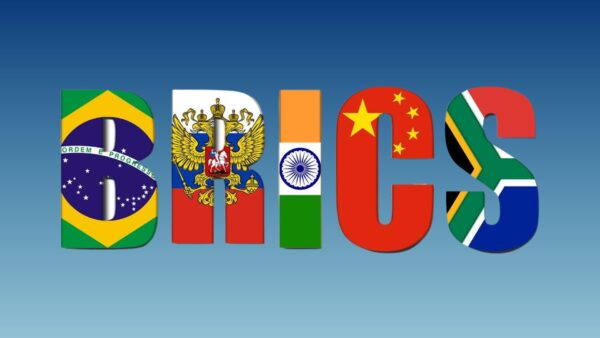
There has been quite a lot of media attention given to the BRICS nations over the last few weeks as a displacement tool for Western political and economic power worldwide. While the BRICS only get media attention every few years, this year has elicited a greater response as the expansion of the BRICS was top of mind for the current members.
The BRICS was seen as a group of influential, large, and regionally important nations who possessed much of the economic pull in their regions and worldwide. A coordinated push promoting the interests of this group of nations was seen as a possible countermeasure to Western economic weight and political influence. While the BRICS did indeed have a lot of power in their own right, the BRICS Summits were often more of a meeting between large powers that not only had little connection to each other, but had differing economic strategies and security interests. Trade between BRICS nations was limited, and some members are considered the main security threat to other BRICS members. The addition of South Africa a few short years ago did not benefit them to any great degree, as economic stresses on the South African economy have plague the nation over the last few years.
The expansion of the BRICS group of nations follows in the same tradition of the Non-Aligned movement in the 60s and 70s. This collective of independent nations attempted to speak as one block in the UN, much of it made up of former colonial nations that wished to ally against Western and Soviet interests. While the concept of having a united front was logical, the history, interests and economies of these nations varied greatly. There was little binding them together unfortunately past the position as smaller independent nations who wished to push against hegemonic powers at the time.
On the economic side, trade agreements like MERCOSUR sought to ally the nations of the Southern Cone of South America against the economic and political weight of the United States in Latin America. Much of the future prospects that MERCOSUR created were shredded when Argentina went into an economic and political spiral in the early 2000s. Agro trade that made them dependent on exports to Western countries was displaced by agro exports to Asia. With political and economic challenges from each nation in the trade block, the interests of individual countries placed the trade block in the shadows for a few years, despite it still existing in its original form for a generation.
With little in the way of common interests for many of these nations, the security challenges between them motivate more of their economic and political strategy than a relationship via their BRICS membership. China and India often coordinate their national strategies as security rivals in their own region, and there is little reason to think that new members from the Middle East will become closer to ending their own multi-generational conflicts due to BRICS membership. On an economic front, BRICS membership has little opportunity to re-energize failed trade relationships nor would develop into a more productive form past official trade agreements. The reality is that security is still paramount, with little trade between current BRICS members as well as limited trade between newer members of the group. There are almost no ties between members and no will to create them in any meaningful way.
The international security issue should also be acknowledged in the formation of the BRICS+ agreement. A formal alliance with Russia and its interests is likely not a reality through additional BRICS members, and any ties that side with Ukraine or Russia in this conflict are already well established. A BRICS that creates its own currency or seeks to displace the US dollar will not be beneficial to most of the BRICS members, and those that have ties with Russia under sanctions are currently benefitting from such a relationship. Countries outside of the conflict have no interest in allying themselves to one side or another, as they prefer to hedge their bets against future political and economic chaos coming from the end of the war.
While the BRICS+ narrative is one founded in proper logic and interests, the history of such multilateral agreements only really works if there is a significant outside motivation for the group. The EU feeling the security challenge of the Soviet Union while seeking to balance the economic weight of the United States enabled its creation, but instability has often fractured it in part over the years. Using regional hegemons in different parts of the world to guide a Non-Aligned movement seems logical as well, and was the foundation of the concept of the BRICS, but there is no sustained and immediate interests that can keep such a group continually united. Even with groups like the EU, it is very difficult to maintain the interests of all members without it being detrimental to one interest group or another. With countries like France, Germany and the UK guiding Europe into the EU, large members can leave, interests of one can diminish rights for others, and bad decisions can affect those who had little say in their implementation. The BRICS+ might have some positive results, but the reality is that it will likely just be a story every few years, with members having their own interests and crises take precedence over anything the BRICS+ contributes to their future…especially if members end up in a direct conflict with each other.